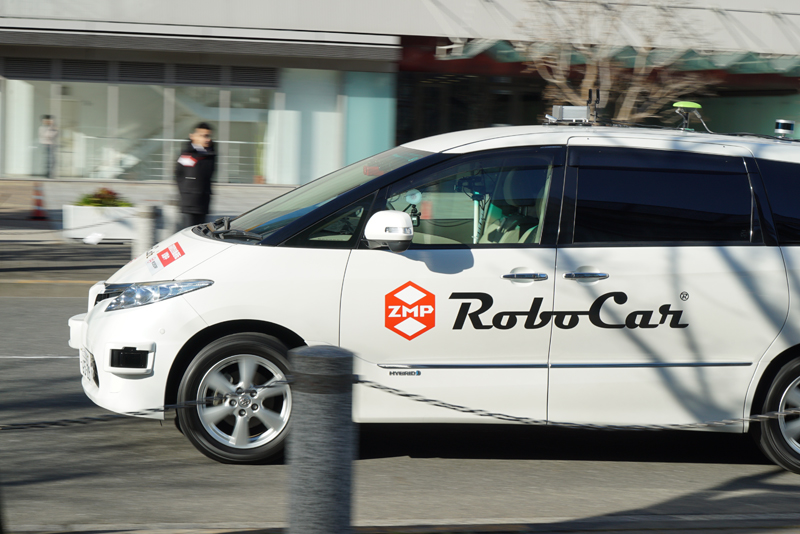D
Deleted member 4210
Guest
Some scooters are not even lasting 30 days. So not only are they being thrown in lakes, rivers, or your local dumpster (by vandals), it seems that they are having fairly short lives due to wear and tear.
https://www.businessinsider.com/sup...-the-cure-to-broken-scooters-interview-2019-1
Superpedestrian apparently has technology to monitor 100 points to help notify when issues occur. And launching their own model now.
Personally, I think their problem runs a lot deeper than this. Its not a vehicle use problem, but a business model problem. Shared or rented vehicles always take a lot of abuse, because people generally aren't apt to take care of something they don't own. With vehicles this small, it's easy to lift or throw or discard them however a user wishes. Their primary convenience advantage is if they are prolific (thousands scattered around every city), and cheap enough for users to rent so they don't need to own one and deal with the hassles of taking care of it, securely parking it, etc. Which brings to mind the next question : Does a society really need this level of convenience, and what happens to a society's health when they are no longer even walking ? It's fairly widely known the US already has an obesity problem, which leads to other serious health conditions like diabetes, heart disease, and more. Getting people out of their cars onto e-bikes and actually doing some exercise could certainly help. But with e-scooters, it seems this is getting people away from walking more than a few feet a day, between destinations that are far enough apart, that would be beneficial to their daily exercise regimen. (10,000 steps a day ? what happens to that ?) I keep being reminded of the movie Wall-E, and the people on the spaceship away from contaminated mother earth. None of them could walk, and well you know their size and shape. All essentially on 'micro-vehicles' carrying them everywhere.
Also, injuries related to these scooters have gone up significantly, as 96% of users are not using helmets.
https://arstechnica.com/science/201...aring-helmets-the-head-injury-rate-proves-it/
https://abc7ny.com/health/e-scooter...ders-not-wearing-helmets-study-finds/5107817/
This is a scary situation in more ways than one, as pedestrians not using scooters are becoming victims of the proliferation of these, and the higher rates of speed than walkers have. And they are all on the same sidewalks ?
I realize that e-bikes are hated by some, but bicycles and ebikes are a lot less prolific, and the riders who own them generally use greater care while riding and do get exercise. Since these e-scooters are not owned, and have very high numbers of them in cities where they do exist (that's their 'model' for 'convenience'), it appears this growth is on a collision course (no pun intended) with some real societal consequences. I have heard from people who live in cities where college campuses have already banned them, including one in Scottsdale. It'll be interesting to see how this all plays out, but I do hope that e-scooter renting issues doesn't result in more regulations on e-bikes and get lumped into one category of "all things 'e' are bad."
https://www.businessinsider.com/sup...-the-cure-to-broken-scooters-interview-2019-1
Superpedestrian apparently has technology to monitor 100 points to help notify when issues occur. And launching their own model now.
Personally, I think their problem runs a lot deeper than this. Its not a vehicle use problem, but a business model problem. Shared or rented vehicles always take a lot of abuse, because people generally aren't apt to take care of something they don't own. With vehicles this small, it's easy to lift or throw or discard them however a user wishes. Their primary convenience advantage is if they are prolific (thousands scattered around every city), and cheap enough for users to rent so they don't need to own one and deal with the hassles of taking care of it, securely parking it, etc. Which brings to mind the next question : Does a society really need this level of convenience, and what happens to a society's health when they are no longer even walking ? It's fairly widely known the US already has an obesity problem, which leads to other serious health conditions like diabetes, heart disease, and more. Getting people out of their cars onto e-bikes and actually doing some exercise could certainly help. But with e-scooters, it seems this is getting people away from walking more than a few feet a day, between destinations that are far enough apart, that would be beneficial to their daily exercise regimen. (10,000 steps a day ? what happens to that ?) I keep being reminded of the movie Wall-E, and the people on the spaceship away from contaminated mother earth. None of them could walk, and well you know their size and shape. All essentially on 'micro-vehicles' carrying them everywhere.
Also, injuries related to these scooters have gone up significantly, as 96% of users are not using helmets.
https://arstechnica.com/science/201...aring-helmets-the-head-injury-rate-proves-it/
https://abc7ny.com/health/e-scooter...ders-not-wearing-helmets-study-finds/5107817/
This is a scary situation in more ways than one, as pedestrians not using scooters are becoming victims of the proliferation of these, and the higher rates of speed than walkers have. And they are all on the same sidewalks ?
I realize that e-bikes are hated by some, but bicycles and ebikes are a lot less prolific, and the riders who own them generally use greater care while riding and do get exercise. Since these e-scooters are not owned, and have very high numbers of them in cities where they do exist (that's their 'model' for 'convenience'), it appears this growth is on a collision course (no pun intended) with some real societal consequences. I have heard from people who live in cities where college campuses have already banned them, including one in Scottsdale. It'll be interesting to see how this all plays out, but I do hope that e-scooter renting issues doesn't result in more regulations on e-bikes and get lumped into one category of "all things 'e' are bad."



